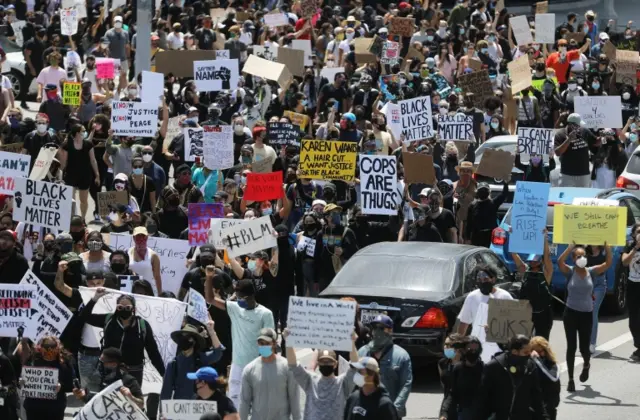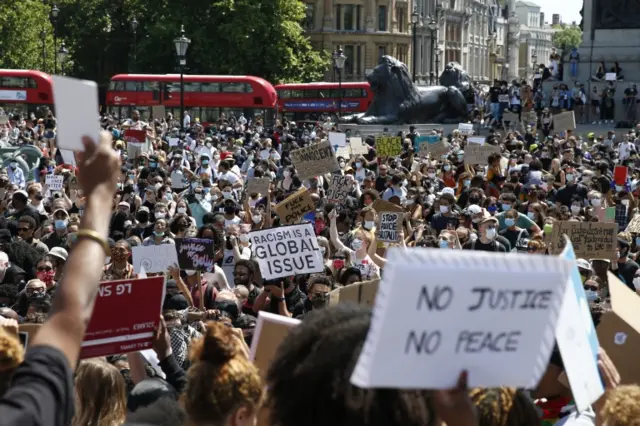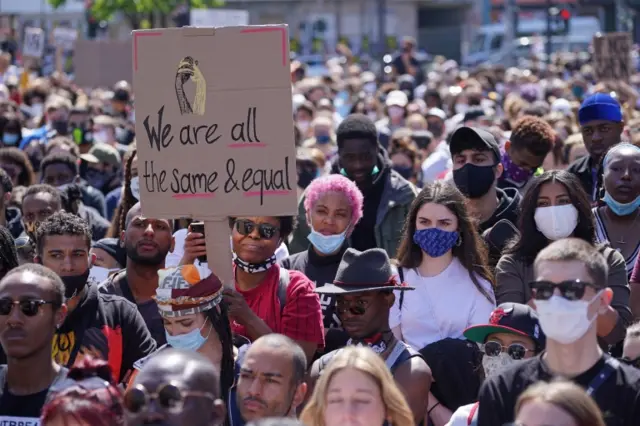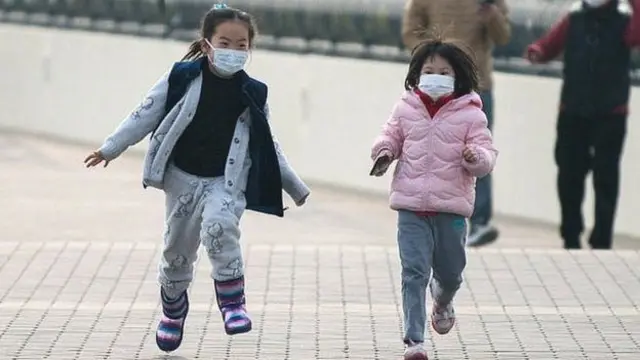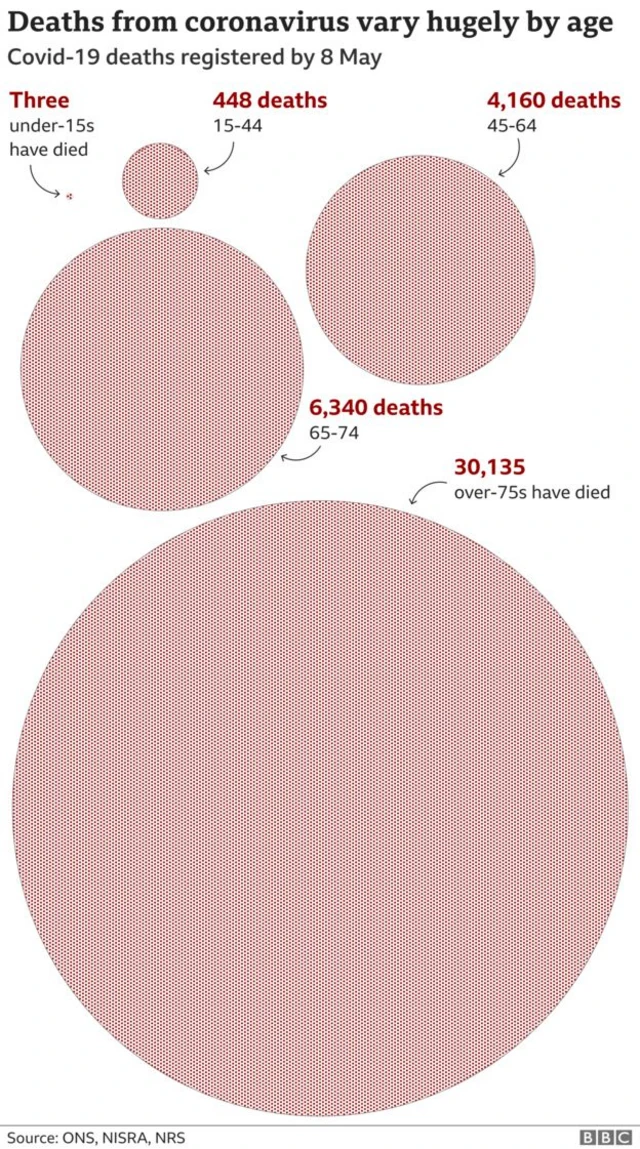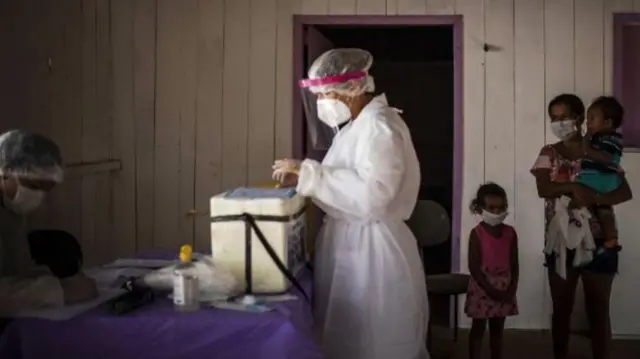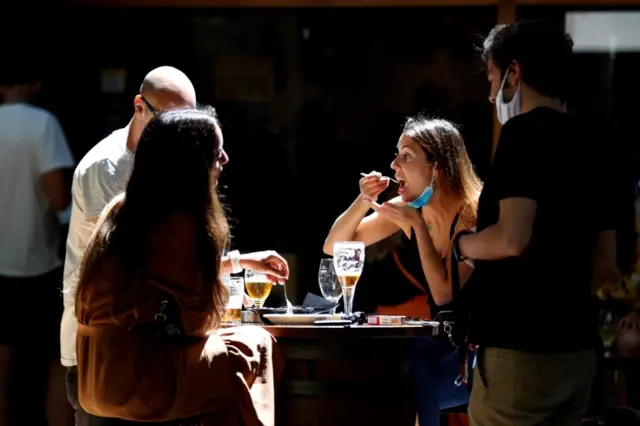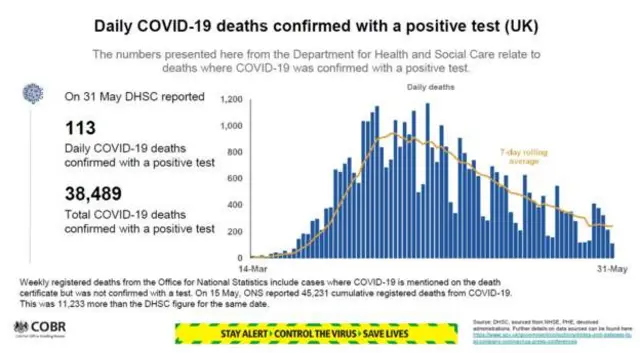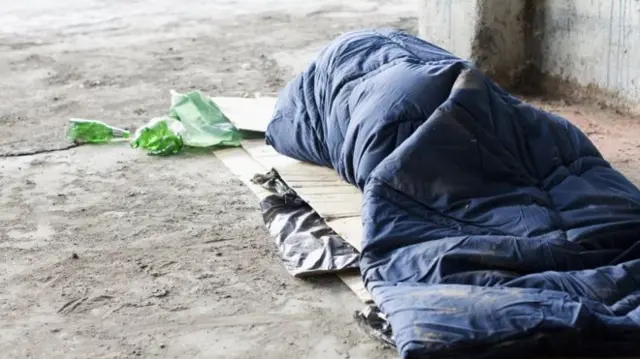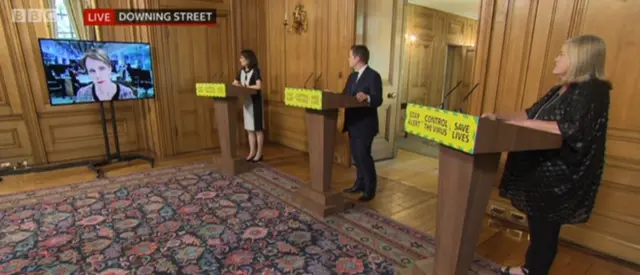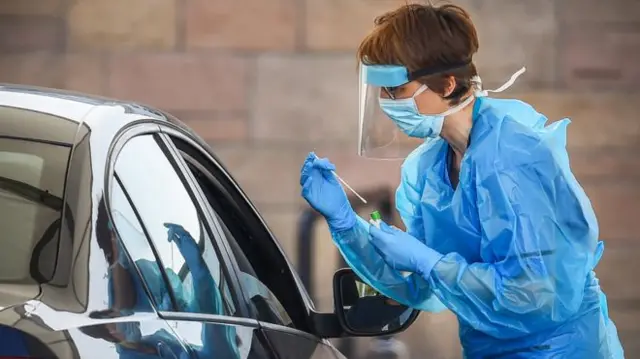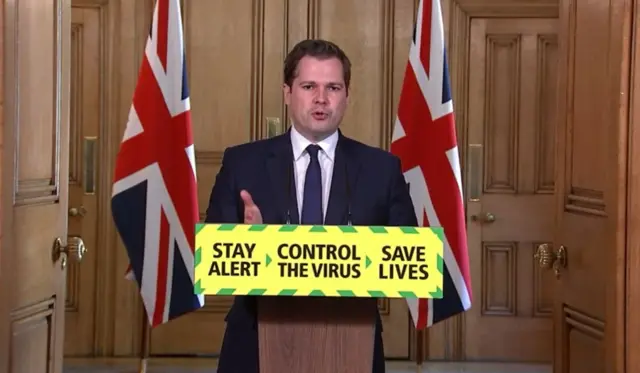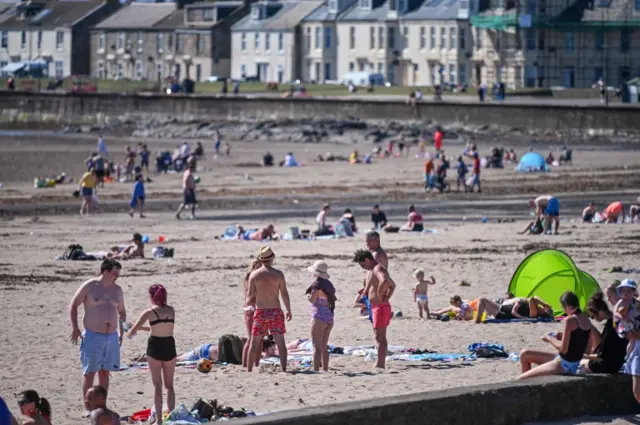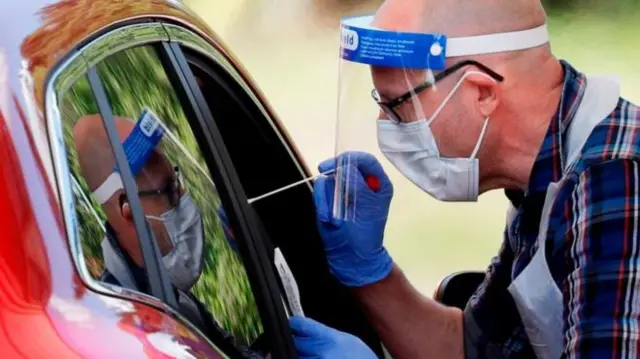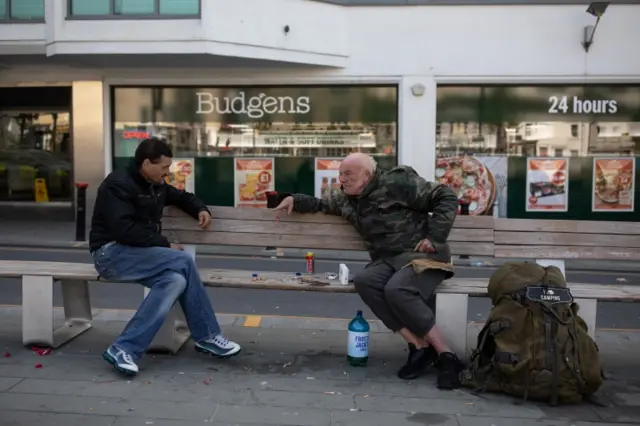Watch: How the virus is hitting some harder than otherspublished at 18:30 British Summer Time 31 May 2020
Coronavirus: Fears and trauma of frontline BAME staff
Studies suggest those from the BAME community in the UK are being affected by the coronavirus disproportionately, and are almost twice as likely to die from the infection than those who are white.
The BBC’s Clive Myrie met the black and minority ethnic staff on the frontline at the Royal London Hospital in East London.
He saw the impact the virus is having beyond the hospital ward.
